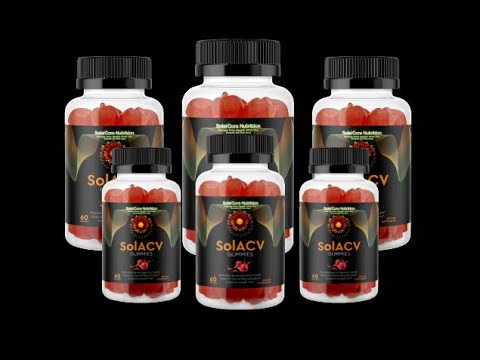Understanding Diet Mountain Dew in a Keto Context
Diet Mountain Dew has been a popular choice for individuals seeking a low-calorie soda option, especially among those looking to reduce sugar intake. The beverage is marketed as a zero-calorie drink, which makes it appealing to dieters and health-conscious consumers. However, for those following a ketogenic diet, where the focus is on lowering carbohydrate intake to achieve ketosis, the question arises: is Diet Mountain Dew keto-friendly? While the drink itself contains no sugar and minimal calories, examining its ingredient list and overall impact on a ketogenic lifestyle is essential for those who want to maintain their dietary goals.


To understand the compatibility of Diet Mountain Dew with a keto diet, it is crucial to recognize the core principles of a ketogenic lifestyle. This involves consuming a diet high in fats, moderate in proteins, and very low in carbohydrates. The main aim is to shift the body’s metabolism away from carbohydrates and toward fats as the primary energy source. Therefore, a beverage that does not interfere with this metabolic shift is desirable. Diet Mountain Dew touts its lack of calories and carbohydrates, making it an attractive option for those craving a sweet, bubbly drink without the guilt of sugar. However, as with all dietary choices, moderation is key and individuals must consider how such drinks fit into their daily carb limits.
Furthermore, an analysis of Diet Mountain Dew’s ingredients reveals that it contains artificial sweeteners, including aspartame and acesulfame potassium. These ingredients allow the drink to maintain its sweet flavor profile without adding sugar or calories. Nonetheless, there is an ongoing debate surrounding the health implications of consuming artificial sweeteners, with some studies suggesting potential effects on metabolism and appetite. For individuals on a ketogenic diet, these considerations are crucial because they may affect the body’s ability to remain in ketosis. Therefore, exploring the potential drawbacks alongside any benefits of consumption is vital for anyone trying to adhere to a low-carb lifestyle.
Diet Mountain Dew’s Ingredient Analysis
When discussing whether Diet Mountain Dew is keto-friendly, a thorough evaluation of its ingredients is essential. Diet Mountain Dew is primarily made up of carbonated water, citric acid, natural flavors, caffeine, potassium benzoate, and artificial sweeteners like aspartame and acesulfame potassium. The first component, carbonated water, is standard for many sodas and contains no calories or carbohydrates. This element poses no issues for those on a ketogenic diet.
Citric acid serves as both a flavoring and a preservative in Diet Mountain Dew. Although it is naturally derived from citrus fruits, its inclusion can raise questions regarding its impact on ketosis. Generally, citric acid has a minimal carbohydrate content and isn’t likely to disrupt ketosis when consumed in moderation. However, it’s still important for individuals to monitor their overall intake of such additives when counting carbs strictly.
Artificial sweeteners, such as aspartame and acesulfame potassium, are where the conversation becomes more complicated. While both sweeteners are low in calories and carbs, some people may experience metabolic disturbances from consuming them. There are mixed opinions about the impact of these sweeteners on insulin levels, hunger, and cravings, especially for those trying to regulate their carbohydrate intake. It’s essential for those following a keto diet to assess their personal response to these ingredients, noting if they trigger cravings for other high-carb foods. Overall, while Diet Mountain Dew may be low in calories, the long-term effects of its artificial components are still being studied.
Alternatives to Diet Mountain Dew
For individuals who enjoy the taste and refreshing quality of Diet Mountain Dew but are concerned about the possible impacts of its ingredients on a ketogenic diet, numerous alternatives exist. One popular option is sparkling water infused with natural flavors. Brands such as LaCroix and Spindrift offer a wide variety of flavors without the calories, sugar, or artificial ingredients found in traditional sodas. The fizzy mouthfeel and fruity essence can provide the satisfaction of soda without the potential drawbacks related to artificial sweeteners.
Another keto-friendly alternative includes unsweetened iced tea, which can be served chilled and offers a range of flavors—from classic black tea to herbal varieties. Iced tea can be enhanced with lemon or mint for a refreshing twist, allowing for a delicious beverage without adding sugar or impacting the ketogenic diet. Some brands also offer flavored tea options, ensuring that flavor enthusiasts can still enjoy satisfying beverages without compromising their dietary choices.
A third option is homemade sodas or flavor-infused beverages. By mixing carbonated water with a splash of lemon juice or a few berries, individuals can create a refreshing drink that aligns with their keto goals. With greater control over ingredients, it’s easier to avoid unwanted additives or excess carbs. This DIY approach not only allows for customization but also encourages creativity in the kitchen, where one can experiment with flavors that satisfy cravings without straying from the ketogenic path.
Impacts of Artificial Sweeteners
The consumption of artificial sweeteners remains a controversial topic in the health and nutrition community, particularly regarding their effects on those following a ketogenic diet. A prevalent concern is that artificial sweeteners might have adverse effects on insulin sensitivity and glucose metabolism, potentially leading to higher cravings for carbohydrates. Some studies have indicated that, for certain people, consuming sweet-tasting substances—regardless of their caloric content—can trigger an insulin response, which could hinder the pursuit of ketosis.
Moreover, the long-term health implications of consuming products with artificial sweeteners are still being examined. Some research suggests potential associations with metabolic syndrome, weight gain, and disruptions to gut health. For individuals on a ketogenic diet, preserving gut health is vital, as a balanced gut microbiome can influence overall bodily functions, including metabolism and appetite control. Therefore, individuals need to consider not only their short-term desires for sweet flavors but also the long-term ramifications of these choices.

For those who rely on Diet Mountain Dew or similar beverages, it may be beneficial to monitor personal reactions to these artificial ingredients. Keeping a journal of consumption can help track any connections between sweeteners and changes in cravings, energy levels, or overall feelings of satiety. With insights from personal experience, individuals can make more informed decisions on whether to continue utilizing these products in their diet or explore alternative options that better align with their health goals.
Navigating Your Keto Journey
Embarking on a ketogenic diet is a transformative journey that involves a significant shift in eating habits and daily choices. While incorporating your favorite beverages, such as Diet Mountain Dew, may seem convenient, it is crucial to evaluate how they influence your overall dietary objectives. Awareness of the ingredients, calorie content, and personal responses is essential for maintaining a successful keto lifestyle.
As one navigates their ketogenic journey, being mindful of hydration is key. Finding a balance of enjoyable and health-positive beverages can enhance the overall experience of dieting. Opting for whole, unprocessed sources of hydration can yield not only superior taste but also better health outcomes. Exploring herbal teas, coffee, or natural fruit-infused waters may offer satisfying alternatives that provide flavor without compromising one’s ketogenic goals.
Lastly, it’s important to remember that each person’s keto journey is unique. What works for one individual may not apply to another. By experimenting and paying close attention to how foods and drinks affect personal health and well-being, individuals can craft a diet that works best for them. Open-minded exploration of alternative beverages can lead to exciting discoveries while encouraging adherence to a low-carb lifestyle.
Frequently Asked Questions about Diet Mountain Dew and Keto
Is Diet Mountain Dew considered keto-friendly? While Diet Mountain Dew does not contain sugar or carbohydrates, its artificial sweeteners may trigger cravings in some individuals. It’s essential to monitor personal responses to this drink while on a ketogenic diet.
What are the primary sweeteners used in Diet Mountain Dew? Diet Mountain Dew primarily uses aspartame and acesulfame potassium as its sweetening agents. These provide sweetness without calories but may have varying effects on individuals’ metabolic processes.
Are there healthier alternatives to Diet Mountain Dew for keto dieters? Yes, many alternatives exist. Options such as sparkling water, unsweetened iced tea, and homemade flavored sodas can provide satisfying beverages without the concerns associated with artificial sweeteners.
How can artificial sweeteners affect my diet? While they provide sweetness without calories, there is some evidence to suggest that artificial sweeteners may increase cravings for carbohydrates or possibly disrupt gut health, impacting overall dieting success.
Can I enjoy Diet Mountain Dew occasionally on a keto diet? Moderation is key. For individuals who enjoy the taste of Diet Mountain Dew, having it occasionally may not significantly impact their diet; however, tracking individual reactions to it is advisable.

